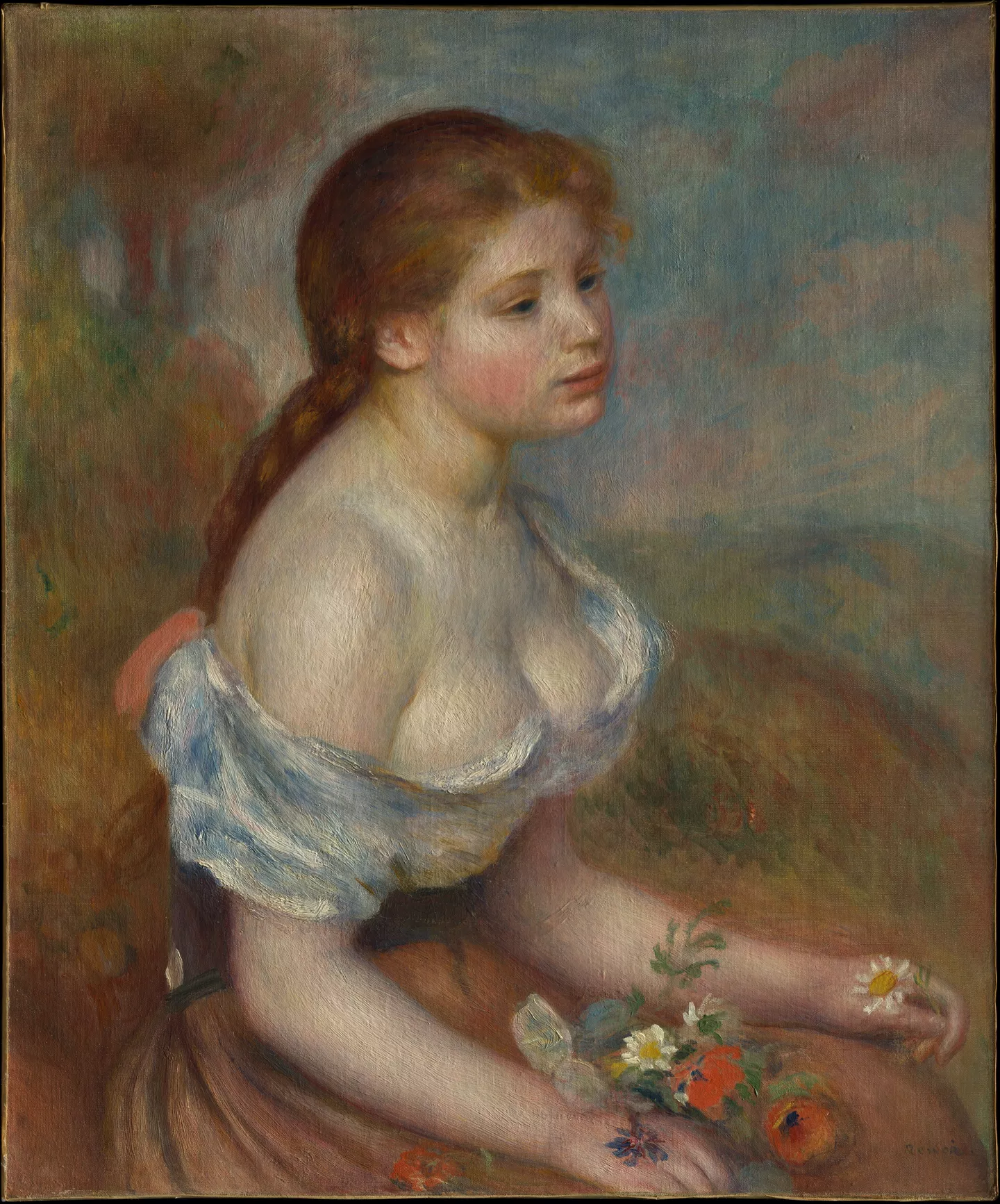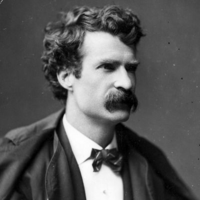
Advice to Youth
Being told I would be expected to talk here, I inquired what sort of talk I ought to make. They said it should be something suitable to youth-something didactic, instructive, or something in the nature of good advice. Very well. I have a few things in my mind which I have often longed to say for the instruction of the young; for it is in one’s tender early years that such things will best take root and be most enduring and most valuable. First, then. I will say to you my young friends—and I say it beseechingly, urgently—
Always obey your parents, when they are present. This is the best policy in the long run, because if you don’t, they will make you. Most parents think they know better than you do, and you can generally make more by humoring that superstition than you can by acting on your own better judgment.
Be respectful to your superiors, if you have any, also to strangers, and sometimes to others. If a person offend you, and you are in doubt as to whether it was intentional or not, do not resort to extreme measures; simply watch your chance and hit him with a brick. That will be sufficient. If you shall find that he had not intended any offense, come out frankly and confess yourself in the wrong when you struck him; acknowledge it like a man and say you didn’t mean to. Yes, always avoid violence; in this age of charity and kindliness, the time has gone by for such things. Leave dynamite to the low and unrefined.
Go to bed early, get up early—this is wise. Some authorities say get up with the sun; some say get up with one thing, others with another. But a lark is really the best thing to get up with. It gives you a splendid reputation with everybody to know that you get up with the lark; and if you get the right kind of lark, and work at him right, you can easily train him to get up at half past nine, every time—it’s no trick at all.
Now as to the matter of lying. You want to be very careful about lying; otherwise you are nearly sure to get caught. Once caught, you can never again be in the eyes to the good and the pure, what you were before. Many a young person has injured himself permanently through a single clumsy and ill finished lie, the result of carelessness born of incomplete training. Some authorities hold that the young out not to lie at all. That of course, is putting it rather stronger than necessary; still while I cannot go quite so far as that, I do maintain, and I believe I am right, that the young ought to be temperate in the use of this great art until practice and experience shall give them that confidence, elegance, and precision which alone can make the accomplishment graceful and profitable. Patience, diligence, painstaking attention to detail—these are requirements; these in time, will make the student perfect; upon these only, may he rely as the sure foundation for future eminence. Think what tedious years of study, thought, practice, experience, went to the equipment of that peerless old master who was able to impose upon the whole world the lofty and sounding maxim that “Truth is mighty and will prevail”—the most majestic compound fracture of fact which any of woman born has yet achieved. For the history of our race, and each individual’s experience, are sewn thick with evidences that a truth is not hard to kill, and that a lie well told is immortal. There is in Boston a monument of the man who discovered anesthesia; many people are aware, in these latter days, that that man didn’t discover it at all, but stole the discovery from another man. Is this truth mighty, and will it prevail? Ah no, my hearers, the monument is made of hardy material, but the lie it tells will outlast it a million years. An awkward, feeble, leaky lie is a thing which you ought to make it your unceasing study to avoid; such a lie as that has no more real permanence than an average truth. Why, you might as well tell the truth at once and be done with it. A feeble, stupid, preposterous lie will not live two years—except it be a slander upon somebody. It is indestructible, then of course, but that is no merit of yours. A final word: begin your practice of this gracious and beautiful art early—begin now. If I had begun earlier, I could have learned how.
Never handle firearms carelessly. The sorrow and suffering that have been caused through the innocent but heedless handling of firearms by the young! Only four days ago, right in the next farm house to the one where I am spending the summer, a grandmother, old and gray and sweet, one of the loveliest spirits in the land, was sitting at her work, when her young grandson crept in and got down an old, battered, rusty gun which had not been touched for many years and was supposed not to be loaded, and pointed it at her, laughing and threatening to shoot. In her fright she ran screaming and pleading toward the door on the other side of the room; but as she passed him he placed the gun almost against her very breast and pulled the trigger! He had supposed it was not loaded. And he was right—it wasn’t. So there wasn’t any harm done. It is the only case of that kind I ever heard of. Therefore, just the same, don’t you meddle with old unloaded firearms; they are the most deadly and unerring hings that have ever been created by man. You don’t have to take any pains at all with them; you don’t have to have a rest, you don’t have to have any sights on the gun, you don’t have to take aim, even. No, you just pick out a relative and bang away, and you are sure to get him. A youth who can’t hit a cathedral at thirty yards with a Gatling gun in three quarters of an hour, can take up an old empty musket and bag his grandmother every time, at a hundred. Think what Waterloo would have been if one of the armies had been boys armed with old muskets supposed not to be loaded, and the other army had been composed of their female relations. The very thought of it make one shudder.
There are many sorts of books; but good ones are the sort for the young to read. remember that. They are a great, an inestimable, and unspeakable means of improvement. Therefore be careful in your selection, my young friends; be very careful; confine yourselves exclusively to Robertson’s Sermons, Baxter’s Saints’ Rest, The Innocents Abroad, and works of that kind.
But I have said enough. I hope you will treasure up the instructions which I have given you, and make them a guide to your feet and a light to your understanding. Build your character thoughtfully and painstakingly upon these precepts, and by and by, when you have got it built, you will be surprised and gratified to see how nicely and sharply it resembles everybody else’s.



